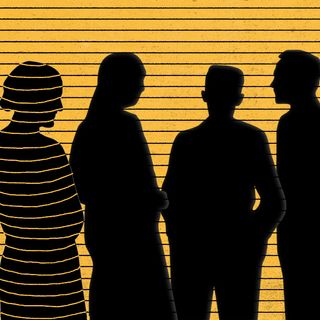1 in every 4 people globally—or nearly 2.5 billion people— will have some degree of hearing loss by 2050, warns the World Health Organisation in its first-ever report on hearing. Additionally, more than 900 million people will have a permanent, disabling hearing impairment, concludes the report.
Currently, around 460 million people worldwide have disabling hearing loss, says the WHO. Lack of information about proper ear care and stigma towards ear diseases and hearing loss prevents people from obtaining health care services that could preserve their hearing. Unaddressed, these issues will lead to a widespread public health problem in the near future.
Hearing may be unpreventably lost due to genetic causes and complications at birth, but preventable causes such as infectious diseases, chronic ear infections, uses of certain drugs, and exposure to excessive noise will drive the increase in hearing impairment. In fact, noise pollution, as from traffic, is a major threat to the hearing of 1.1 billion people, says the WHO.
A global shortage of health care professionals working in ear and hearing care is driving this increase in hearing impairment. Among low-income countries, about 78% have fewer than one ear, nose, and throat (ENT) specialist per million people; 93% have fewer than one audiologist per million; only 17% have one or more speech therapists per million; and 50% have one or fewer teachers for the deaf per million, per the WHO report.
India stands slightly better; a 2016 study found one ENT specialist for 28,000 people.
Untreated hearing loss and ear diseases can have a significant, adverse effect on a person’s socio-economic condition, as well as their mental health. Studies have also concluded that adults with hearing loss have a much higher unemployment rate; even those who are employed tend to be underemployed compared to their hearing peers.
Related on The Swaddle:
NCERT Announces Plan to Translate Textbooks Into Sign Language
The fallout will be greatest among already vulnerable groups.
“Untreated hearing loss can have a devastating impact on people’s ability to communicate, to study, and to earn a living,” Dr. Tedros Adhanom Ghebreyesus, Director-General of the WHO, said in a press release. “It can also impact people’s mental health and their ability to sustain relationships.” Exclusion from the ease of mainstream communication is especially damaging, as it can isolate people further in society and cause loneliness and frustration.
Recent estimates peg India’s current deaf population at 18 million people, and four out of every thousand children in India live with hearing loss.
Hearing loss is also found to have detrimental effects on the academic performance of children, due to a lack of suitable support. In India, a 2019 report found that only 5% of deaf and hard of hearing children get basic schooling, and only 1% of the total deaf population has access to quality education in the country.
While medical and surgical treatment can cure most ear diseases, making available alternative options of coping with the adverse effects of permanent hearing loss is also crucial, the report says. Currently, the WHO estimates only 17% of those who could benefit from hearing aid actually get to tuse one. Investment in hearing care is also cost-effective: governments can expect a return of nearly US $16 for every US $1 invested.
Supportive care for hearing loss demands increased access to hearing technology such as hearing aids and implants, support services, and rehabilitative therapy. It is also important to promote the use of sign language and make captioning and sign language interpretation available at places of education, work, entertainment, to further improve access to communication for those facing any degree of hearing loss, according to the report. In addition, it is critical to fix the gap of access to infrastructure, such as unavailability of ENT surgeons, audiologists, audiological equipment and speech therapists.
The WHO report, launched ahead of the World Hearing Day on March 3, underlines why countries around the world need to expand their healthcare services to address hearing loss.




